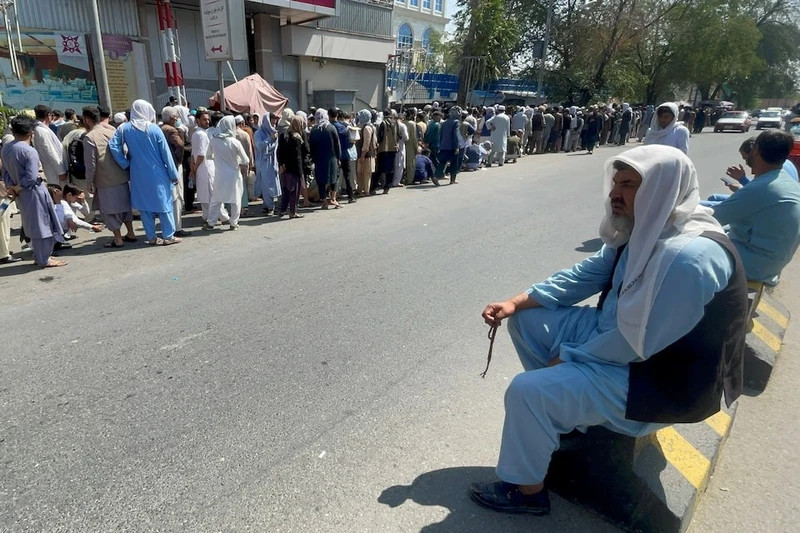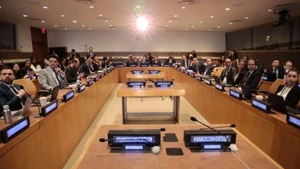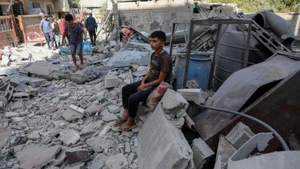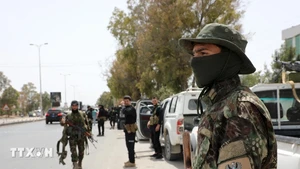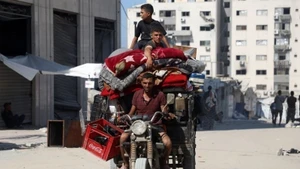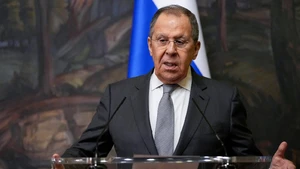The United Nations and many humanitarian organisations called on countries to make efforts to protect civilians and aid workers, especially in the context that hotspots of conflict have not yet cooled down in many places.
According to the United Nations Office for the Coordination of Humanitarian Affairs (OCHA), a total of 280 aid workers were killed in 33 countries last year. More than half of the 2023 deaths were recorded in the first three months — October to December — of the hostilities in Gaza. Extreme levels of violence in Sudan and South Sudan have contributed to the tragic death toll, both in 2023 and in 2024. In all these conflicts, most of the casualties are among humanitarian workers.
As conflicts continue, OCHA fears that the figure could grow even higher in 2024.
It is estimated that more than 170 aid workers have been killed and more than 150 have been attacked or kidnapped since the beginning of the year.
Turning a blind eye when humanitarian workers are killed only serves to increase food insecurity, childhood malnutrition, involuntary displacement, and the spread of infectious diseases and other threats.
It is clear that without the help of aid forces, efforts to resolve crises will be even more difficult, especially in the context of increasingly urgent aid needs in many places.
Faced with the above situation, more than 400 humanitarian organisations around the world expressed concern about the lives and health of those performing tasks on the front lines.
In a letter to UN member states on World Humanitarian Day (August 19), these organisations stated: In 2023, tens of thousands of civilians were killed or injured in armed conflict, with fatalities among humanitarian workers doubling compared to the previous year. The impact on the mental health of civilians and humanitarian workers has reached unprecedented levels.
Despite international condemnation, the conflicting parties continue to flout the alarming situation mentioned above.
These actions clearly violate International Humanitarian Law, humanitarian organisations call on the parties to end attacks on civilians, as well as to be held accountable for the devastating consequences they have caused. These organisations emphasise that compliance with International Humanitarian Law has no exceptions.
Through the letter, humanitarian organisations hope that the international community will step up efforts to protect civilians, aid workers and volunteers, as well as the infrastructure and the critical civilian infrastructure they rely on, as called for in UN Security Council Resolution 2730 adopted this May. The letter also mentions facilitating their work.
In his message on World Humanitarian Day, UN Secretary-General Antonio Guterres highly appreciated the achievements of humanitarian agencies and organisations despite facing severe funding shortages. Humanitarian operations coordinated by the United Nations provided life-saving aid to more than 140 million people last year.
With courage and dedication, aid workers persevered to overcome many obstacles, contributing to reducing the suffering of people in conflict areas.
Celebrating humanitarians is not enough. We must all do more to protect and safeguard our common humanity.
Antonio Guterres
UN Secretary-General
The UN Secretary-General wrote International humanitarian law — the law that protects civilians during wartime — is being ignored and trampled.
Guterres emphasised that "celebrating humanitarians is not enough. We must all do more to protect and safeguard our common humanity."
According to OCHA, nearly 300 million people around the world will need humanitarian assistance and protection in 2024, due to conflicts, climate emergencies, and other drivers. Obviously, carrying out this difficult task requires not only commitments but also practical actions.
Regardless of whether they receive responses from relevant parties or not, humanitarian organisations still affirm that they will not leave and continue to make efforts to resolve humanitarian crises around the world.
